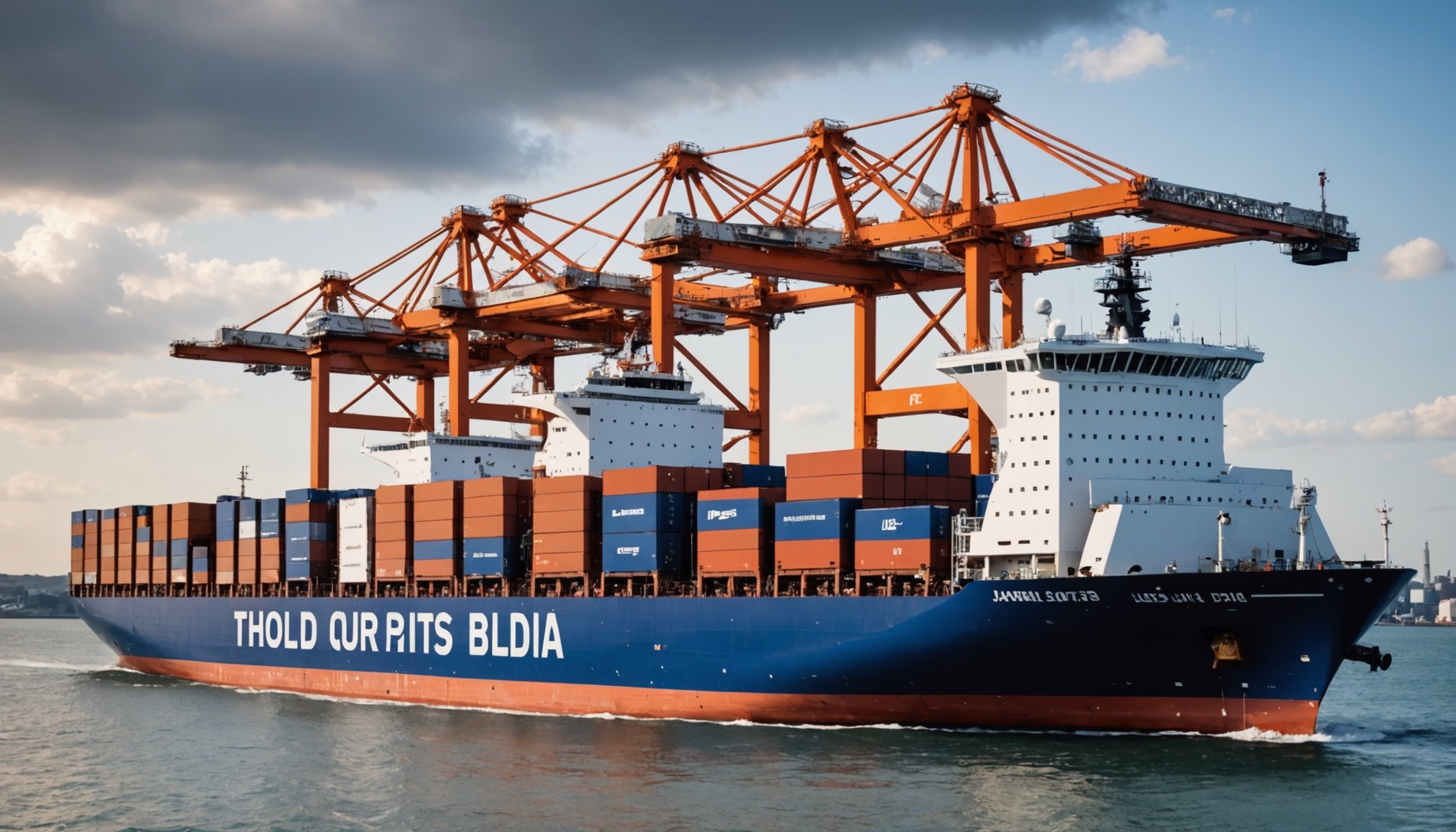Understanding Legal Frameworks for Third-Party Logistics
Navigating the legal frameworks in logistics requires a keen understanding of both local and international regulations. In the UK, logistics law encompasses various rules that impact transportation, warehousing, and customs procedures. These regulations ensure orderly and efficient operations while protecting consumer and environmental rights.
Globally, shipping regulations are governed by a mix of international treaties and agreements. They include the International Maritime Organization (IMO) conventions and the World Trade Organization (WTO) agreements, which dictate standards for maritime safety, environmental protection, and fair trading practices. It’s crucial for businesses involved in international logistics to remain compliant with these laws to avoid legal pitfalls and potential penalties.
In the same genre : Navigating the financial services and markets act 2000: essential legal responsibilities for uk businesses
Compliance is essential as it not only protects businesses from legal challenges but also enhances their credibility in the market. Understanding the UK logistics law in conjunction with global shipping regulations equips businesses with the tools to operate efficiently across borders. This knowledge allows third-party logistics providers to tailor their services to meet the legal requirements of various jurisdictions, ensuring a seamless and lawful supply chain management.
Contracts with Third-Party Logistics Providers
Understanding logistics contracts with third-party providers can be crucial for businesses seeking efficient services. These contracts typically involve service agreements detailing the responsibilities and expectations of both parties. Standard terms often include delivery schedules, handling procedures, and liability clauses addressing potential damages or losses.
In the same genre : Crucial legal insights for uk enterprises maneuvering through the redundancy landscape
Standard Contractual Terms
Most logistics contracts adhere to standard terms that outline the fundamental aspects of the service. These include timelines for delivery, shipment handling protocols, and cost structures. Including liability clauses ensures that both parties understand the risk distribution in case of unforeseen events.
Customization of Contracts
To cater to unique business requirements, contracts may require customization. Customization can involve adjusting delivery terms, introducing specific service agreements, or modifying liability clauses to reflect certain conditions or demands. This flexibility helps align the contract with a company’s operational needs and risk management strategies.
Importance of Clear Terms and Conditions
Clear and precise terms and conditions are paramount to preventing misunderstandings that could lead to legal disputes. Ambiguous terms might result in confusion regarding responsibilities, particularly when liability clauses are involved. By ensuring clarity in contracts, businesses can better safeguard their interests and foster strong partnerships with logistics providers.
Liability Considerations
Navigating liability in logistics involves several critical components that ensure the smooth operation of shipping and transport activities. An essential aspect is understanding the potential liabilities that can arise during the movement of goods. Companies must be aware of the risks involved in shipping and how they might impact not only delivery timelines but also financial stability.
To mitigate these risks, a comprehensive approach to insurance is necessary. Different types of insurance can protect businesses from unforeseen circumstances, such as cargo insurance for goods in transit and liability insurance for damages or losses. Each type reduces the financial burden on companies in the event of mishaps during the transport process.
Risk management strategies are crucial for minimizing liability. These can include regular audits of logistics practices, investing in staff training, and implementing robust tracking systems. By proactively identifying potential issues and addressing them, companies can reduce their exposure to liability.
Emphasizing the importance of effective communication within the logistics network, businesses can ensure that liability concerns are swiftly identified and managed. This promotes a resilient supply chain capable of adapting to challenges with minimal disruption.
Customs and Regulatory Compliance
In the realm of international trade, adhering to customs regulations is crucial for seamless operations. Each country has its own set of import/export laws which businesses must understand and follow to ensure compliance. Navigating these regulations efficiently minimises the risk of legal issues and penalties.
Key Customs Requirements
Understanding the trade compliance landscape is vital. It includes knowing the tariffs, quotas, and specific regulatory requirements for different goods. Businesses must be aware of the various taxes and duties that apply to their products to avoid unexpected costs and delays. Engaging with custom brokers who are well-versed in specific import/export laws can be beneficial.
Documentation and Record Keeping
Accurate documentation is at the heart of ensuring compliance with customs regulations. Critical documents, such as invoices, bills of lading, and certificates of origin, must be meticulously maintained. Consistent record keeping not only satisfies legal obligations but also enables easy resolution in case of disputes.
Challenges in Compliance
Compliance poses several challenges, including understanding complex customs regulations and ensuring accurate filing of necessary documents. Common pitfalls such as incorrect tariff classifications can lead to penalties. To avoid these, businesses should invest in regular training for staff and leverage technological tools to keep up-to-date with changing regulations.
Case Studies and Best Practices
In the ever-evolving world of logistics, case studies provide valuable insights into what works and what doesn’t. A prime example can be seen in successful UK businesses leveraging third-party logistics to streamline operations. These companies have embraced industry best practices, such as utilising sophisticated tracking systems and strengthening partnerships with logistics providers. By doing so, they’ve increased efficiency and reduced operational costs.
However, not every logistics venture meets with success. There are dozens of logistics failures where companies failed to adapt to changing market conditions or neglected legal compliance. One lesson from such missteps is the critical importance of staying updated with regulations to avoid penalties and maintain smooth operations.
For businesses striving to excel in logistics, adhering to best practices for legal compliance is essential. This includes regularly auditing contracts and ensuring all partnerships meet current standards and regulations. Fostering open communication with logistics partners also helps in preemptively addressing potential compliance issues. By learning from logistics success stories and errors, businesses can more confidently navigate the complexities of logistics, blending expertise with innovation.
Resources for Further Investigation
Navigating the complexities of legal compliance in logistics requires a multitude of legal resources and reliable compliance tools. Below are essential components that can aid in this endeavor.
Links to Regulatory Bodies
Stay updated with the legal landscape by referring to official regulatory bodies. These organizations provide guidelines and standards essential for maintaining compliance. For instance, the UK’s Health and Safety Executive and the Road Haulage Association offer comprehensive resources related to workplace safety and transport regulations. Engaging with these bodies ensures an authoritative understanding of current policies.
Suggested Legal Documents
Having the right legal documents is critical for compliance. Recommended templates include terms and conditions for logistics services, non-disclosure agreements, and partnership contracts. These documents outline the rights and responsibilities of all parties, minimizing risks of legal disputes. Regularly updated templates ensure alignment with any regulatory changes.
Online Compliance Tools
Digital innovations offer practical compliance tools to streamline operations. Software solutions like Contract Express and Risk Warden automate document management and risk assessments, respectively. These tools not only save time but enhance accuracy in compliance processes. Furthermore, their user-friendly interfaces make them accessible to logistics professionals aiming to uphold their regulatory obligations efficiently.











